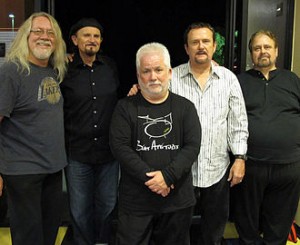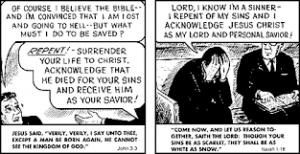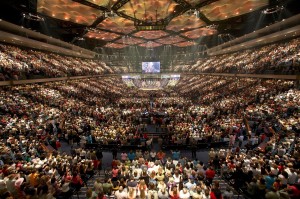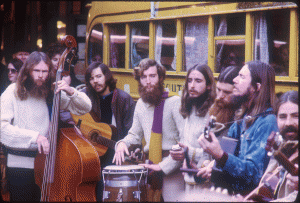I was grateful for the lively exchange that took place last week around a new series I launched on this blog called “The Jesus Movement’s Unintended Consequences”. (Click here to read the first two posts in the series.) We’re four decades out from that time of change and renewal in the church. Time passed allows us a bit of perspective, and I’m looking forward to continuing the conversation in the weeks to come.
Before I move on to another topic in the series, I want to share part of an email I received last week from Dr. Chuck Fromm. Fromm ran Maranatha! Music from 1975-1999. He launched Worship Leader magazine in 1990, and continues at the helm of the publication. He has a Ph.D. from Fuller Seminary, and lectures in the areas of communications and worship. He is a husband and father to five.
Dr. Fromm grew up at the center of the Jesus Movement. His uncle was the late Chuck Smith, the influential leader of the Calvary Chapel movement. Maranatha! Music started as a way to capture the sounds of Jesus Movement worship and outreach. A good percentage of what we Jesus Freaks were singing in church and listening to on our turntables, cassette players and CD’s from the 1970’s to the 1990’s bore the label’s brand including Psalty the Singing Songbook, Love Song, Daniel Amos, and dozens of praise and worship standards. I asked Chuck if I could share some of what he wrote in his email to me with you. He was responding to the unintended consequences I listed about the praise music of those early days. He kindly gave his permission. Below is a slightly edited-for-clarity version of his email:
To keep Jesus Music in perspective, we were producing prayer in the vernacular as the Catholics (following Vatican II) were doing the same with the music for Mass. In todays media vernacular, this process is called the “remediation” of form. New hearts, new song (prayers), new forms. And with the technology of production and distribution of new forms, democratized old forms were often buried. New prayer poets/local theologians were standing on the past.
Back to unintended circumstances….as Boomers got married, got jobs, and got kids, the inevitable social process called “routiniZation of charisma” occurred and new institutions were built. Some were built intentionally using stuff of the past, and others were built without that intention. For example, the hymnal book no longer functioned as a credible means of curation and distribution (of music). The new technologies of the digital era have stepped in. My old friend, the late Peter Drucker, said it well: “Movements die and institutions live.”
As we Boomers, believers outside of most every religious system, slip into the twilight years of succession and retirement (restructuring), we shall see what is living – continuing to reproduce – and what is dead. The prediction would be that all the icons that have become idols no longer pointing to God but to themselves will die. What will live is the “Everlasting living Jesus Concert”! This song arises like Easter and renews the life of our institutions and starts new movements.
I was honored to hear from Chuck, and appreciated his thoughts about what will live on from the music of that era. What do you think about his assessments:
– about the rise in vernacular worship forms? Has this “from the people, of the people, for the people” casual accessibility been a strength or a weakness?
– about the way in which new music is now distributed to congregations? Even the songs of modern hymnwriters like the Gettys now comes to congregations via digital forms, not inclusion in a new hymnal. The music comes to us more quickly. Is this a help or a hindrance to sung worship?
– about the hope of renewal in institutions? Do you see evidence of renewal in any unexpected places right now? Where?
To close, a bit of throw-back music from these guys:

Here’s one of their most well-known songs. Enjoy your trip back in time – or perhaps forward, to the Everlastin’ livin’ Jesus concert:















